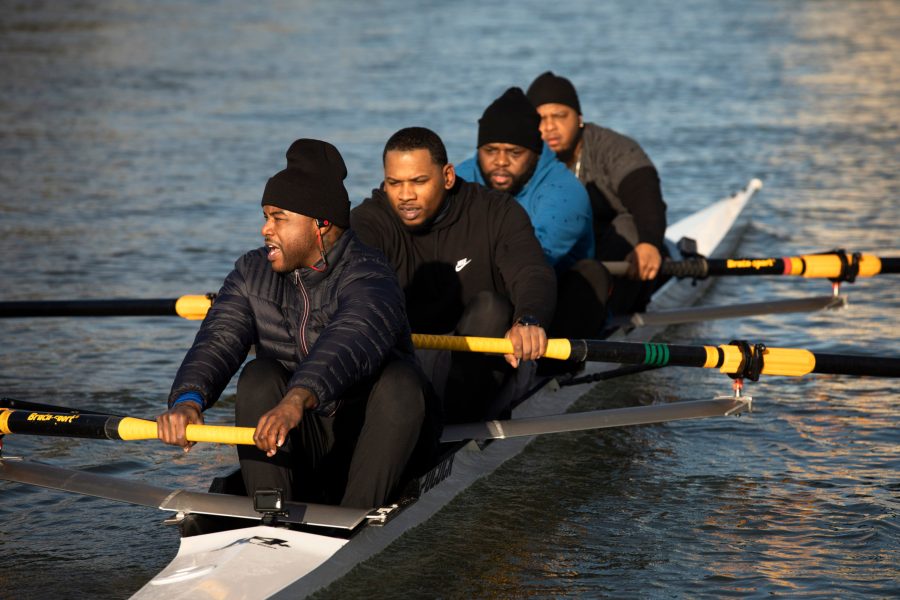At age 35, Mary Mazzio could have rested on her laurels. She was a partner at a top law firm in Boston, and she had the rare bragging rights of being a former Olympic rower. But she wanted to do more—and she did.
Twenty years, 10 movies and several awards later, Mazzio’s pivot to filmmaking turned out to be much more than a pipe dream. But the journey wasn’t easy.
“I was terrified [to pivot]. I was a partner at a law firm. I had these beautiful golden handcuffs,” explained Mazzio, in an interview with Know Your Value. “But I realized that I had been the beneficiary of so many gifts and so many peoples’ largesse. I decided that I needed to do more.”
Mazzio has since dedicated her life to creating films that feature the underserved, from her 1999 cult film “A Hero for Daisy,” which depicted a female rowing team fighting for legitimacy at Yale University in the 1970s; to the 2017 film “Underwater Dreams,” which gave voice to sons of undocumented Mexican immigrants who were learning how to build amphibious robots. She fought on behalf of trafficked children in “I Am Jane Doe” and for New York street vendors in “The Apple Pushers.”
“A Most Beautiful Thing” is the latest film to come out of her production company, 50 Eggs. The film is executive produced by former Duke basketball star Grant Hill, former Miami Heat NBA star Dwayne Wade and hip-hop executive 9th Wonder. It is narrated by legendary rapper Common.
TRAILER: A Most Beautiful Thing – Narrated by Common from 50EGGS on Vimeo.
In some ways, Mazzio has come full circle. The documentary tells a story about rowing, the sport that catapulted Mazzio to the Olympics in 1992. At the time, she didn’t know that a handful of underserved Black kids in Chicago were forming the first rowing team of its kind back then, too.
“A friend of mine said, ‘hey, have you read this book about this team on the west side of Chicago?’” Mazzio said. “I told her ‘there was no such thing!’”
Mazzio was thrilled to be wrong. The book, re-published this year, was “A Most Beautiful Thing” by Arshay Cooper.
Cooper was from the west side of Chicago, and his life could have ended very differently. He attended a very violent high school. His friends and family moved in and out of gangs and prison while his mother battled an addiction to drugs. Back then, Cooper was told repeatedly that he wouldn’t make it past the age of 18. Then, he learned to row.
Mazzio read about his incredible story and reached out to Cooper.

An unlikely filmmaker is born
Mazzio was born one of four kids into a family in Boston, whose mother was, at one point on food stamps.
“My mother couldn’t rub two nickels together,” she said.
A late bloomer athletically, Mazzio became an athlete in college and acquired scholarships and work study jobs to make her way through college at the Massachusetts women’s college Mount Holyoke. She became a two-time captain for Mount Holyoke’s varsity rowing team. She considered herself very lucky.

“I did not come from money, but I never would have seen the inside of a college had my skin been a different color,” said Mazzio who is White.
Mazzio would move up to compete in the U.S. women’s rowing team at the 1992 Olympics in Barcelona.
“Rowing is about the grind. There is no glory. There is no press. We’re not the motor boaters or the downhill skiers,” said Mazzio.

After years of learning, competing and growing among other women, Mazzio attended Georgetown University Law School, where she encountered sexism.
“What I noticed was the silence of women. At Mount Holyoke, I remember thinking, ‘what’s this?’” Mazzio recalled. “I spoke up in class one time and a man came up to me after and said ‘boy, I didn’t know that a woman could be that funny.’ I was like, what is this the 1950s?”
Mazzio used such humor and determination to get by, eking her way up to become partner in a Boston firm.
“I would be at a table and I would say something. A male colleague, five minutes later, would say exactly what I said and he would be heard and I wouldn’t,” she said. “I would chirp up and say ‘what am I, chopped liver?’ Everyone has their own way of dealing with it.”
As her life became easier and more luxurious—lattes, a car, a parking garage under her building —Mazzio became increasingly uneasy. On a pro bono level, she was helping indigent tenant clients in court. But it wasn’t enough.
“It was so depressing to me over time that I could be helpful to a number of people, but not helpful from a policy or scalable standpoint,” Mazzio said.
She considered politics for a minute but shied away from the public nature of it all. Instead, she decided on filmmaking and attended Boston University film school.














